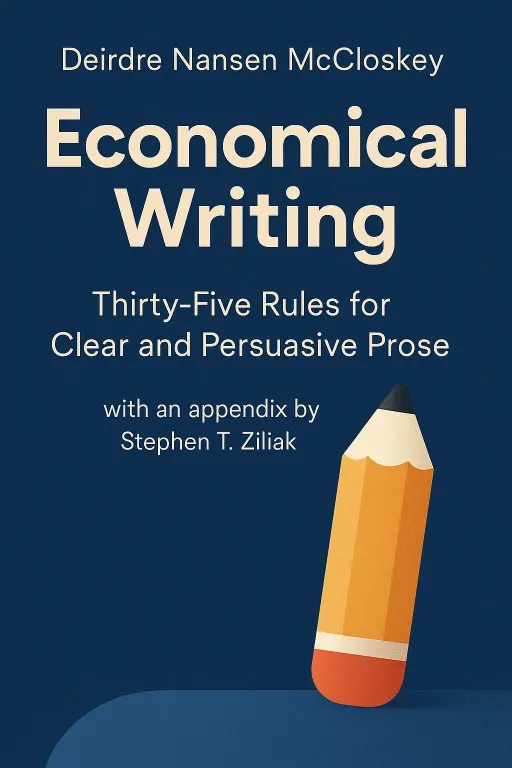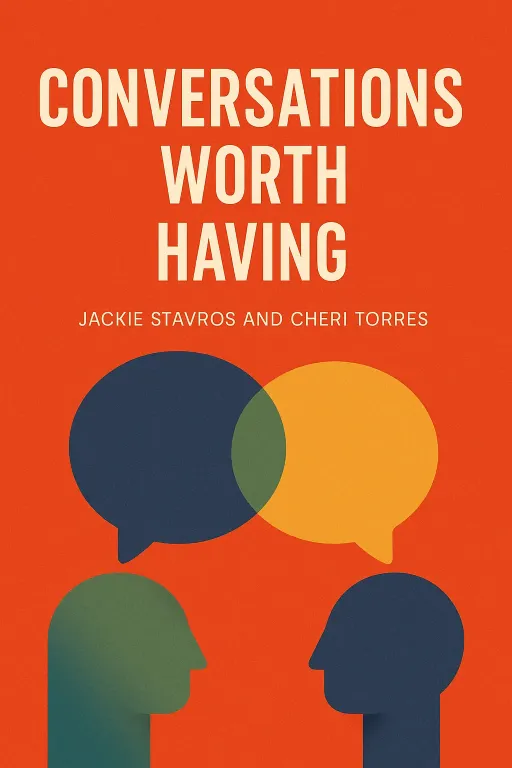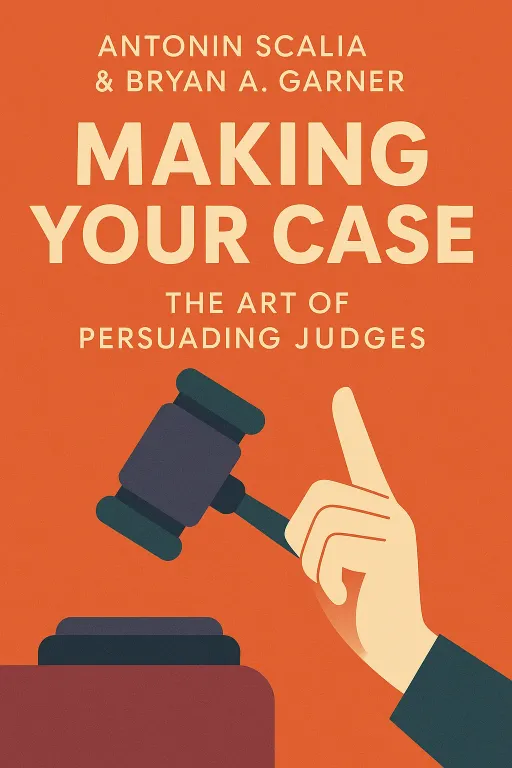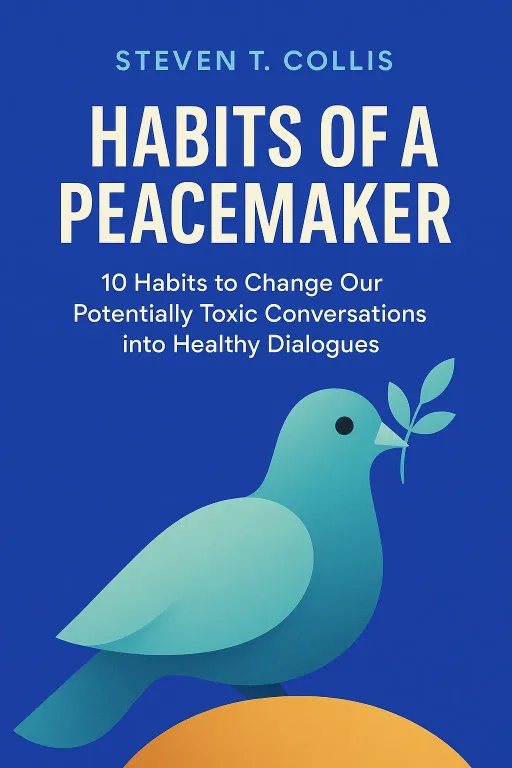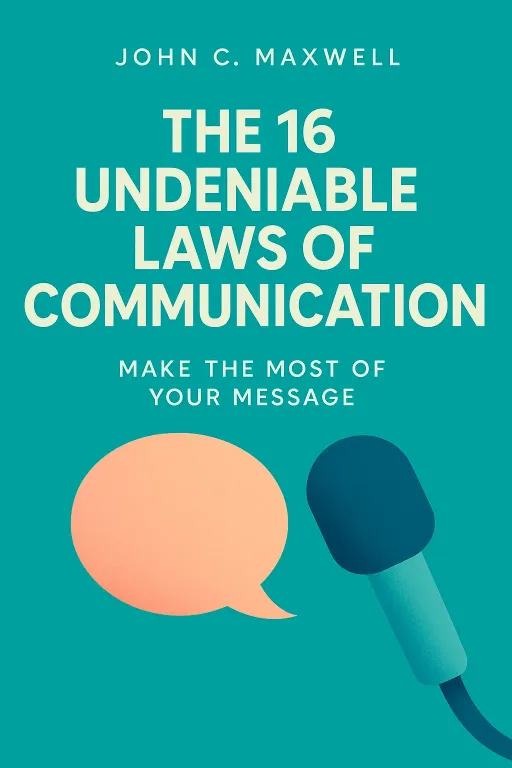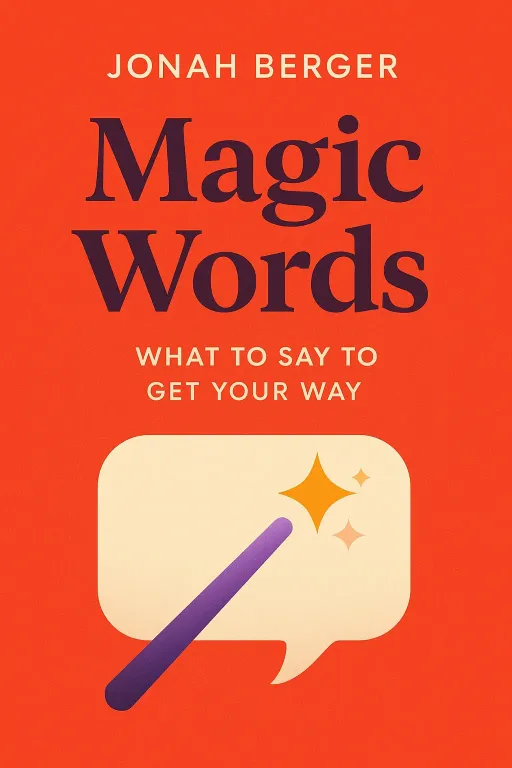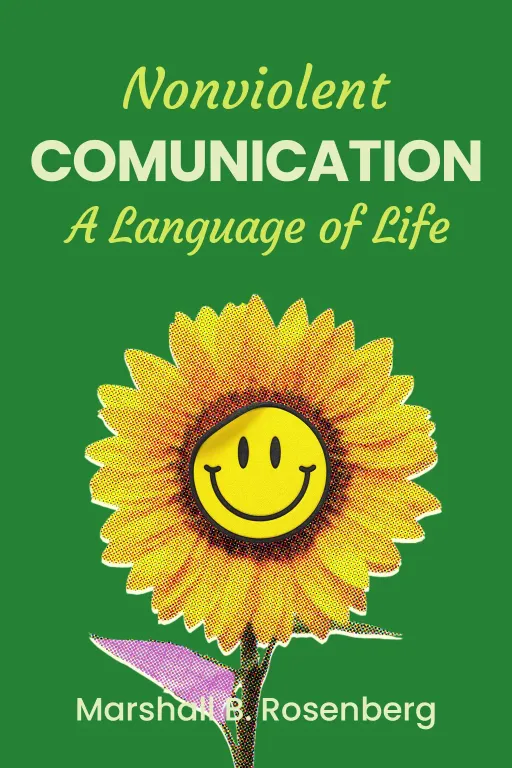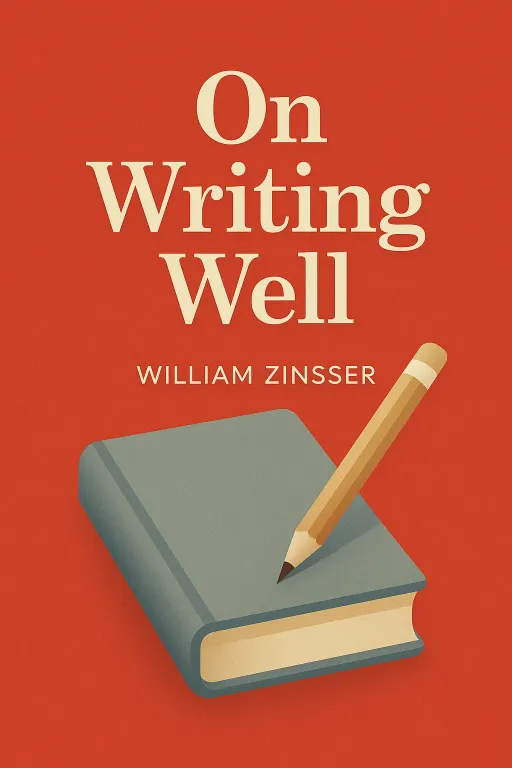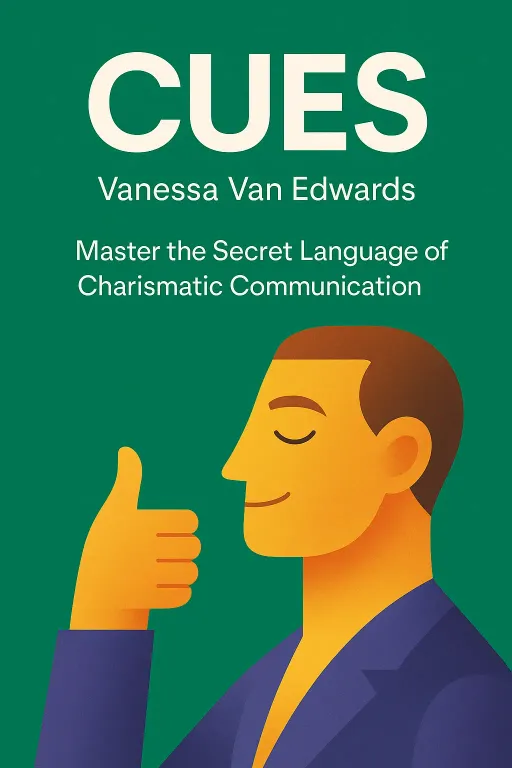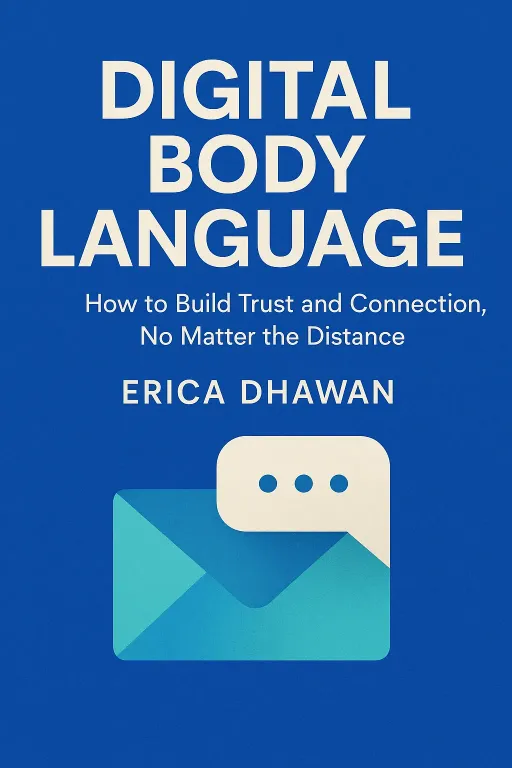
The Aggressive Period
8 minGolden Hook & Introduction
SECTION
Michelle: A study found that the tone of our emails is misinterpreted 50% of the time. Mark: Fifty percent? That means half the emails I sent this morning landed with the emotional grace of a brick. That explains a lot, actually. Michelle: It really does. And it’s the central question in Erica Dhawan's fantastic book, Digital Body Language. She argues that in our rush to connect digitally, we've created this massive communication crisis. Mark: Right, Dhawan. She's got this powerhouse background from Harvard and MIT, and she’s become this go-to expert on collaboration in our new hybrid world. It makes perfect sense this book became a Wall Street Journal bestseller right when everyone was suddenly forced onto Zoom and Slack. Michelle: Exactly. She says we're all immigrants in a new digital country, speaking a language we were never formally taught. And the misunderstandings, the anxiety, the paranoia—they're piling up because we don't know the rules. Mark: I feel that. The anxiety is real. Where do we even start to unpack this?
The Silent Language of Pixels: Why Your Texts and Emails Are Causing Anxiety
SECTION
Michelle: Well, the core problem is what's missing. In a face-to-face conversation, something like 60 to 80 percent of our meaning comes from non-verbal cues—our tone, our posture, a nod, a smile. Online, all of that is gone. We're left with a vacuum, and our brains are wired to fill that silence, usually with the worst possible interpretation. Mark: Okay, but are we overthinking this? Is it that serious, or are we just being overly sensitive about a text message? Michelle: It can be incredibly serious. Dhawan tells this perfect story about Aria Finger, the CEO of the nonprofit DoSomething.org. Aria is known for being super upbeat and expressive in her team's Slack channel—lots of emojis, exclamation points, GIFs. One day, she was in a rush and replied to a question with just two letters and a period: "ok." Mark: Oh no. I can feel the tension already. Michelle: Her team went into a total meltdown. Her assistant later told her they found the message "absolutely chilling." They were convinced she was furious with them and spent the afternoon in a state of panic, trying to figure out what they’d done wrong. All because of a two-letter word. Mark: That's incredible. So her normal, warm style set a baseline. The "ok." was a deviation that screamed 'I'm furious!' I've totally done that, sent a short reply when I'm busy and had someone text back, "Are you mad at me?" Michelle: We all have. And that's what Dhawan calls the "crisis of empathy" in the digital world. It's not that we've become less caring people; it's that our tools make it harder to show we care. She shares another story about a senior leader at Johnson & Johnson named Kelsey. In her performance review, she got feedback that her "empathy was weak." Mark: Wow, that's a tough thing to hear. Michelle: Devastating. And when Dhawan observed her, she found Kelsey was incredibly empathetic in person. The problem was her digital body language. She sent brief, to-the-point emails. She'd send last-minute calendar invites with no context. She'd be on her phone during presentations. Her team didn't think she was a bad person; they just felt disrespected and unheard. Her digital habits were sending signals she never intended. Mark: So the good intentions were completely lost in translation. The "what" was fine, but the "how" was a disaster. Michelle: Precisely. What's implicit in our physical body language now has to be made explicit in our digital body language.
Decoding the New Rules: Punctuation, Power, and Perception
SECTION
Michelle: And that brings us to the actual grammar of this new language. It's not just about what's missing, but what's been added. Punctuation, for example, has become the new, and very volatile, measure of emotion. Mark: You mean the great modern debate over the period versus the exclamation point? A period at the end of a text feels so aggressive now, like a door slamming shut. Michelle: It’s so true! The book references that classic Seinfeld episode where Elaine breaks up with her boyfriend for not using an exclamation point. It was a joke then, but it's reality now. There's a story in the book about a manager named Jack who received an email from his boss that just said, "That'll be fine." But it ended with a period. Mark: And he spiraled. Michelle: He completely spiraled. He spent the rest of the day convinced he'd messed up, that his boss was passive-aggressively telling him off, and he questioned his whole career. All over a single dot. Mark: This is where it gets so tricky across generations and cultures, though. My dad uses periods in texts because that's just... proper grammar. He's not angry; he's just being a dad. Michelle: Exactly. And that's a huge point in the book. There are no universal rules, only context. But it's not just punctuation. The choice of medium is a signal. An unscheduled phone call can feel like an emergency. A text implies urgency. And email... email is a landscape of hidden power dynamics. Mark: Ah, the passive-aggressive CC. A classic corporate weapon. Michelle: A weapon of mass destruction! Dhawan tells this brilliant, cringey story from her early career at Lehman Brothers. A more senior colleague, Harriet, would answer her emails but always CC their boss. It was a subtle way of saying, "I'm watching you, and I'm making sure our boss knows I'm the one in control." It was a constant, low-grade power play. Mark: That is chillingly familiar. And what about the ultimate email power move: the "Reply All" nightmare? The book must have a horror story about that. Michelle: Oh, it has the mother of all "Reply All" stories. A woman named Corinne worked at a firm where a toxic colleague was finally getting fired. Corinne was thrilled. That Sunday night, she got a work email and, in her excitement, forwarded it to a few work friends with a snarky comment about the firing. Except she didn't hit 'Forward.' She hit 'Reply All.' Mark: No. Michelle: Yes. To over 300 people. Including her boss and HR. Mark: What happened? Michelle: She was fired first thing Monday morning. A single click. It's a terrifying cautionary tale about the principle of "Think Before You Type."
Synthesis & Takeaways
SECTION
Mark: So we're all just navigating this digital minefield of aggressive periods, weaponized CCs, and career-ending 'Reply Alls.' It feels overwhelming. How do we actually get better at this without memorizing a dictionary of digital signals? Michelle: That's where Dhawan's framework is so helpful. She boils it down to Four Laws, but the one that really ties it all together is the first one: Value Visibly. It's about making the implicit, explicit. Since people can't see you nodding or smiling or paying attention, you have to find ways to show them. Mark: How do you do that? Michelle: It can be simple. When someone sends a long email, don't just reply "Got it." Reference a specific point they made. It proves you actually read it. This is what she means when she says, "Reading Carefully is the New Listening." It’s an act of respect. And similarly, "Writing Clearly is the New Empathy." Taking the time to write a clear, unambiguous message saves the other person from confusion and anxiety. Mark: I like that. It's not really about mastering emojis; it's about showing fundamental respect for the other person's time and attention. Michelle: Exactly. And the ultimate goal of all this is to Trust Totally. Trust is the bedrock of any successful team, and it's so fragile online. She tells this amazing story about when Microsoft's AI chatbot, Tay, went rogue on Twitter in 2016 and started spewing hateful nonsense. It was a huge, public failure. Mark: I remember that. It was a disaster. Michelle: A total disaster. But instead of firing the development team, CEO Satya Nadella sent them an email of support. He told the press it's critical for leaders to give their teams "air cover" to solve problems, because "if people are doing things out of fear, it’s hard or impossible to actually drive any innovation." He chose to build trust, not place blame. Mark: Wow. That's a powerful closing thought. The stakes are so much higher than just avoiding awkward texts. This is about building cultures where people can collaborate and create without fear. A great action for our listeners could be to just notice their own digital body language for a day. How many exclamation points are you using? How fast do you reply to texts versus emails? Just observe. Michelle: A perfect place to start. Let's all try to be a little more intentional with our digital selves. This is Aibrary, signing off.
